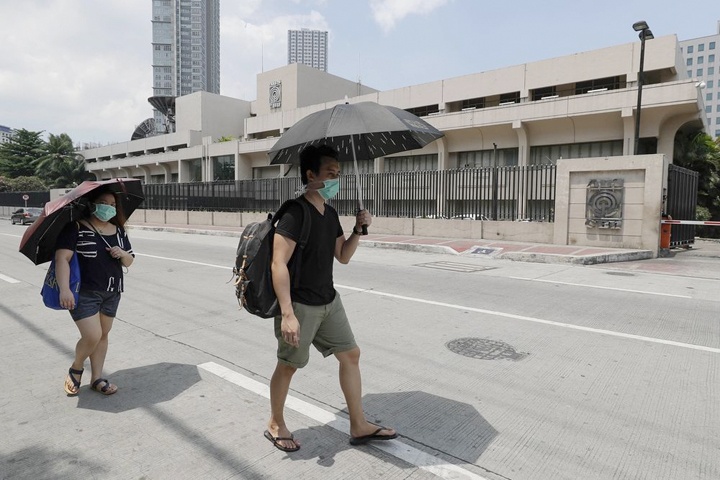A DEPUTY speaker is pushing for the passage of a resolution recommending the temporary use by the government of ABS-CBN’s former television and radio frequencies as a means to provide alternative distance learning modalities to students this coming school year.
In filing House Resolution 1044, Deputy Speaker Luis Raymund Villafuerte—one of the 70 legislators who voted in the House committee on legislative franchises to deny ABS-CBN’s franchise renewal—said his proposal seeks to mitigate the impact of the coronavirus pandemic on the education system.
Villafuerte filed the resolution as the Department of Education (DepEd) is currently working to transition the modality of teaching from the conventional “face-to-face” learning to blended learning, or a combination of online distance learning and in-person delivery of learning materials to the homes of the learners.
Classes start on August 24, with a clear directive to shun face-to-face classroom encounters as part of health safeguards against Covid-19.
Villafuerte’s pitch comes a day after some quarters pointed out how one of ABS-CBN’s units, the multiawarded Knowledge Channel, had such a good reach and network and had been very helpful to the education department and private schools in conveying good content to learners.
“Exhausting all possible delivery modes such as the use of untapped television and radio frequencies as those vacated by ABS-CBN is important in keeping students engaged amid the learning crisis sweeping across the globe as a result of the coronavirus disease 2019 [Covid-19] outbreak,” he said.
“The unused frequencies may also be used for information on Covid-19 prevention and control, risk reduction and preparedness,” Villafuerte said.
According to Villafuerte, the Philippines is among the countries experiencing a “learning crisis” because of the pandemic.
Citing a World Bank report, Villafuerte said the pandemic “is causing more than 1.6 billion children and youth to be out of school in 161 countries or around 80 percent of the world’s students.”
“Inequality and inaccessibility of opportunities such as those pertaining to Internet connectivity and possession of a laptop pose a variety of challenges for teachers and learners,” he said.
Moreover, Villafuerte said the former frequencies used by ABS-CBN will be especially useful in areas not yet reached by digital infrastructure, such as some of the communities in the Bangsamoro Autonomous Region in Muslim Mindanao (BARMM).
Earlier, Villafuerte noted that the decision of the House committee on legislative franchises not to renew the franchise of ABS-CBN was a “tough and difficult” one.
“The 70 legislators who voted against renewal had arrived at a difficult decision in upholding the Committee Report, as it was convenient and popular to just vote for renewal, given the sustained media offensive of the TV network and its allies in the media—along with members of the political opposition who had shrewdly capitalized on this issue to score pogi points in the press by foisting phony issues upon the public at the expense of President Duterte,” he added.
Cayetano refutes Poe
Meanwhile, House Speaker Alan Peter Cayetano refuted the claim of Sen. Grace Poe that the denial of ABS-CBN’s corporation franchise application was a “dangerous precedent for all other franchises.”
Contrary to Poe’s allegation, Cayetano said the recent action of the House panel has set strong precedent wherein the House of Representatives “will never tolerate anyone, including oligarchs, who will abuse the system and cheat both the government and our people.”
Cayetano said the denial should have a “chilling effect” only on those who would abuse the system and hold cavalier attitudes toward our laws, and even the Philippine Constitution.
Image credits: AP/Aaron Favila































